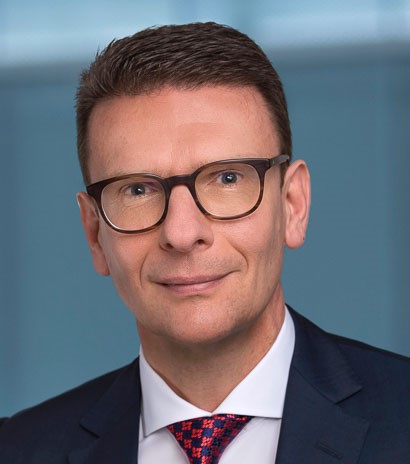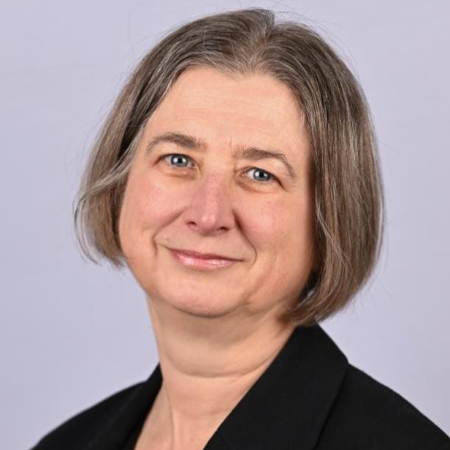Keynote: Deutsche’s Schmidt – from export financier to ‘project manager’
Werner Schmidt, Deutsche Bank’s new head of structured trade and export finance discusses how he sees his role morphing given the increasing complexity and longer lead times of many large deals. Is it still fun? (DB Version)

TXF: Your new role combines structured trade & export finance (STEF) for Germany and global head – how’s it going, and how was 2019 for your export finance business?
 Werner SchmidtWerner Schmidt (WS): I was part of the STEF senior management team already, so in terms of topics, there haven’t been any surprises, it’s been more a case of reorganising myself on a personal level. For business, the first half of 2019 was quite challenging as deal flow was relatively slow. The pipeline has been good but we’ve seen time to implementation increasing in many countries and markets.
Werner SchmidtWerner Schmidt (WS): I was part of the STEF senior management team already, so in terms of topics, there haven’t been any surprises, it’s been more a case of reorganising myself on a personal level. For business, the first half of 2019 was quite challenging as deal flow was relatively slow. The pipeline has been good but we’ve seen time to implementation increasing in many countries and markets.
There may be fewer transactions now, but they have been more ‘complex’ transactions and have risk profiles which require more attention, not only in terms of country and financial risk but also non-financial risks. That's the trend we've seen in many markets: fewer transactions, larger, more complex transactions and longer lead times in terms of getting the deals done.
TXF: How and why is that complexity manifesting itself and does that changing risk profile mean you’re using different structures for deals?
WS: The entire landscape we’re operating in has changed and has become more challenging. Ten years ago, export finance was about getting ECA cover in place and managing it. However, with regulation changes and changes in geopolitics and governance, the role of export financier has changed. It’s now more a project manager role.
You still have to manage ECA coverage and financial and country risk but there are multiple other drivers. For instance, topics like governance in general, KYC, environment and social assessment. It’s all done for a good purpose and is absolutely necessary, but export financiers need to think like project managers, where at the core you have to organise yourself and a lot more internal and external counterparties that need to be involved. This adds complexity to transactions.
TXF: And has that changed the role of the export finance professional in terms of the skills you need?
WS: Yes, indeed. You need to manage all these different strings properly, not only for regulatory purposes, but also to run a safe and sound business that also protects economic and financial sustainability.
There are two dimensions to this, one is that yes, whilst it is fair to say the business process has slowed down due in part to increased regulatory and other internal compliance requirements, on the other hand we have to recognise that this change is for a good purpose.
The question then is, is the framework appropriate? Do we achieve what we want by adding complexity to the approval process or should we have a more holistic view? For instance, in the area of social and environmental management and monitoring, it’s a very good thing that we help drive business into that direction of being more sustainable and looking at social aspects.
It’s always a challenge when we talk to our clients as to who should be in the driver’s seat for such issues. One could ask, is it banks or clients, say exporters, to move matters forward? The only question is whether the balance is right between the administrative elements and regulation and whether we’re not too busy in the administration rather than look at the core of business. We support the purpose, but sometimes it gets administratively complex.
TXF: And compliance is increasing costs for you too?
WS: Yes, this is certainly one aspect why we’re seeing fewer and larger deals – certainly fewer smaller deals. And there’s a big debate in many countries about ‘small ticket solutions’ and local ECAs are trying to find solutions. For instance, in Germany, AKA Export Credit Corporation has been mandated by its shareholder banks to look into solutions.
Running an export finance business has certainly become more costly and banks are more focused on the larger ticket sizes.
TXF: Are the deals you are doing more complex too in terms of their structuring, or do they have to be more ‘cookie cutter’ and less interesting for the reasons you’re talking about?
WS: The question is, to your point, what is the purpose of what we do in export finance? And here’s the key – that purpose is to bring a positive impact to communities who benefit from infrastructure projects. And that makes the business so interesting. For instance, in the Egypt power plant we financed with Siemens [Deutsche was one of the three lead arrangers coordinating funding that contributed to more than half ($3.5 billion) of the $6 billion that ultimately went into financing Beni Suef, Burullus and New Capital three years ago], that was exactly what makes the business so attractive. What we do is visible – we finance infrastructure, wind farms, green energy, good things for people.
That’s why the business is also very competitive. You are very close to your clients on both sides – exporters and those taking loans, and it’s unrivalled in any business. So even though there’s a lot of administration and regulation, it’s a fun business.
There was a time 10-15 years ago when people did business just because an exporter asked for financing, but those times have changed from both an economic, regulatory, reputational and non-financial risk perspective and already when we receive an RFP we conduct due diligence and decide whether or not to go for the transaction. Banks haven’t pulled out from that space, competition is cutthroat and people want to do export finance business because it is so close to their clients.
TXF: Even though last year wasn’t a stellar year for export finance for the most part, what were the standouts for you?
WS: We were one of a number of banks on the Taiwan offshore wind – the second Yunlin project. The fourth quarter of last year was busy, which made up for a slower start to the year across the industry, so we should end closer to our busy 2018 levels. Our pipeline is quite strong too, particularly in Sub Saharan and Eastern Africa. MENA, strategically yes, but we will have to see how things develop given the current difficult geopolitical environment, and Russia is a very strong market for us. Demand for export finance in 2020 should be up despite an efficient capital market.
TXF: What does your client portfolio look like, you mentioned Siemens, is it predominantly German exporters?
WS: If you look at our footprint, Germany is still number one in terms of ECA use in terms of volumes, but the fastest growing business is in Asia, China in particular, and also in Scandinavia. Also, our London business is strong. And we’re active with most of the major ECAs.
TXF: Are there risks ECAs crowd out banks? Some exporters seem to bypass the banks and go straight to ECAs.
WS: There are two dimensions for direct lending by ECAs. There is a distinction between what is strategic for the exporter country versus pure commercial projects where banks play the strongest role. There the interaction between banks and ECAs is close.
TXF: There remains a lot of liquidity in the market, if the interest rate environment does turn, how will it affect export finance?
WS: You always have to look at not only the export finance space, but also the broader capital markets space. As long as there are plenty of alternatives to export finance we will see more compression on margins and pricing.
TXF: And sustainability issues for export finance – particularly given the drive to move out of financing of oil, gas and coal-mining industries?
WS: Our CEO (Christian Sewing) has made strong statements on this. As well as transforming our own business, we’re constantly asking ourselves how we can support our clients as they transform their own business operations into a more sustainable model. To tackle this issue Deutsche Bank has created a group-wide Sustainability Intelligence Unit, which works across all divisions in our sustainability function to generate ideas for our clients. There has to be a proper, genuine, sustainable and mutually beneficial interaction.
All Deutsche Bank employees benefit from full unrestricted access to TXFnews.com. Simply create your account by clicking here





